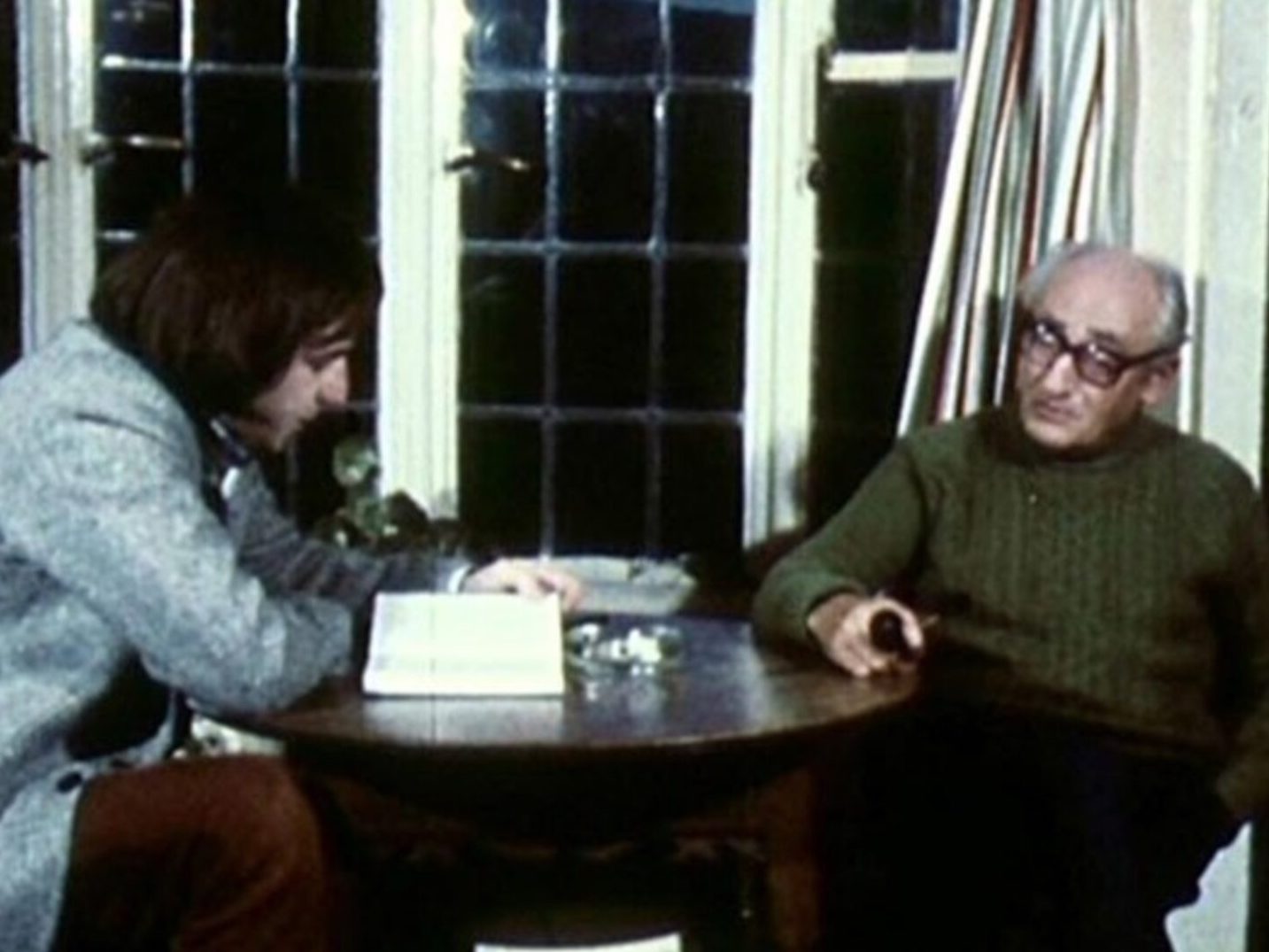
A documentary series about film personnel working in the German film industry who were forced into exile under Nazi threat. Based on years of research and extensive interviews with emigrants from the centre and peripheries of German film production, the series is both an act of remembrance and a historical analysis of a key period in film history.
“Every interview brought a couple of new people. I felt reminded of the Straub/Huillet film Die Chronik der Anna Magdalena Bach (1968), which I had seen in 1970 in Berlin: all the children who had been born and died are counted – and with that I realised that music is work, that it is connected with life, with the children and also with dying. That gave me the creeps. The people who have been born and died became real somehow, just because they had been counted.”
Karin Rausch in conversation with Imme Klages1
“The project on emigration in the German-speaking film industry after 1933 very closely approximates my idea of the kind of work I should be doing in future. I’ll be busy with this undertaking for about four years. It will culminate in a TV-film in several episodes, and I’ll also be publishing a book (in two volumes); I can also use parts or interim results of my work on radio, in periodicals, and for lectures. Researching the project will involve a great deal of communication and allow or even require travel. The topic is multidimensional and thus corresponds to my “capacities for integrating a wide range of elements”; what’s more, it’s anti-metaphysical in that one can keep sight of the big picture and anticipate when the project will materialize. I’m pretty slow and prefer to work on two or three long-term projects at once; it goes against my grain to have to jump constantly from one theme to another (for TV, for example}, usually just when one has begun to get a handle on the subject matter. On the other hand, I don’t like lifelong undertakings. At any rate, I don’t believe I have any further ambitions to speak of in the history of cinema, although there are two projects that would very much appeal to me (if I could find collaborators): an investigation of the electronics industry, bank capital, and motion-picture production, and a comparative study of movie companies.”
Günter Peter Straschek2
"Ein einzigartiges Dokument – und zwar auch formal und ästhetisch, weil hier ein ‚Kinomensch’ mit Kamera und Ton gegen alle Fernsehgewohnheiten umgeht, indem er feste Einstellungen und Plansequenzen herstellt. Ein Verfahren, das einnimmt und fasziniert – wird hier doch nichts durch ‚Zwischenschnitte’ kaschiert: die über 80 Interviewten in aller Welt offenbaren durch ihre physische Anwesenheit und die Art ihres Redens (etwa ihrer Ferne vom deutschen Sprachausdruck) in jedem Augenblick ihr Sosein und Dasein – geben dem, was ihnen zugestossen ist und was sie erlebt haben, beredten Ausdruck."
Johannes Beringer3
- 1Peter Nestler, “On Günter Peter Straschek and the German-Speaking Film Emigration of the 1930s,” Walden, 2019.
- 2Günter Peter Straschek, “Straschek 1963-74 Westberlin,” Sabzian, 2 March 2022. Originally published as ‘Straschek 1963-74 Westberlin’ in Filmkritik 8, nr. 212 (1974).
- 3Johannes Beringer, goethe.de.

